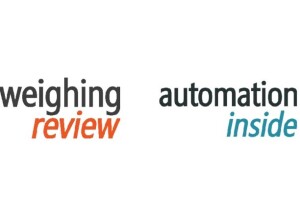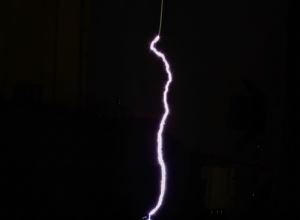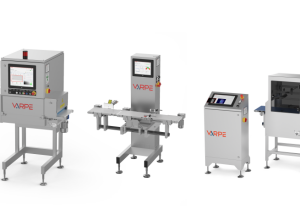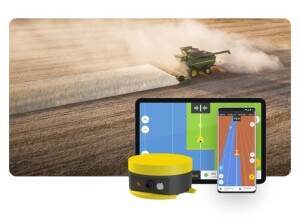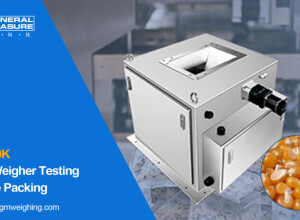Definitive Guide to IP Ratings: Choosing Washdown Scales for Food and Pharma
The Critical Role of IP Ratings in Hygienic Weighing
In the Food & Beverage and Pharmaceutical industries, the cleanliness and integrity of weighing equipment are non-negotiable. Standard industrial scales cannot withstand the harsh cleaning regimes necessary to prevent contamination, such as high-pressure jets, caustic chemicals, and prolonged saturation. This is where the Ingress Protection (IP) Rating system becomes the single most critical factor in scale selection.
The IP rating is a globally recognized standard (IEC 60529) that classifies and rates the degree of protection provided against the intrusion of solid objects (like dust) and water. For any scale subject to frequent cleaning—or "washdown"—understanding the correct IP rating is the key to ensuring equipment longevity, minimizing downtime, and maintaining regulatory compliance (e.g., HACCP, GMP).
Understanding the IP Rating Code (IPXX)
The IP code consists of two digits, each representing a specific level of protection. Choosing the wrong scale rating means premature equipment failure and risk of contamination.
First Digit: Protection Against Solids (Dust and Objects)
This digit ranges from 0 (no protection) to 6 (total protection against dust). In hygiene-critical environments, only high scores are acceptable.
- IP5X (Dust Protected): Limited ingress of dust is permitted. While better than nothing, this is often insufficient for sensitive areas.
- IP6X (Dust Tight): Complete protection against dust ingress. This is the minimum required rating for any scale operating in clean, dry environments like pharmaceutical compounding rooms or flour milling areas, preventing cross-batch contamination.
Second Digit: Protection Against Liquids (Water)
This digit ranges from 0 (no protection) to 9K (high-pressure, high-temperature jet streams). This digit determines the scale's suitability for washdown procedures.
- IPX5: Protected against low-pressure water jets from any direction. Suitable only for basic rinsing.
- IPX6: Protected against strong water jets. Suitable for heavier rinsing, but not high-pressure washdown.
- IPX7 (Temporary Immersion): Protected against the effects of temporary immersion in water (up to 1 meter for 30 minutes).
- IPX8 (Continuous Immersion): Protected against continuous submersion in water under conditions specified by the manufacturer.
- IPX9K (High-Pressure/High-Temperature Washdown): Protected against close-range, high-pressure, high-temperature spray-downs. This is the gold standard for hygienic processing.
Decoding the Washdown Standards: IP68 vs. IP69K
The choice between IP68 and IP69K is where most purchasing mistakes occur. The correct choice depends entirely on the cleaning methodology and microbial risk.
| Rating | Solid Protection | Liquid Protection Description | Typical Cleaning Method | Ideal Application |
|---|---|---|---|---|
| IP67 | Dust Tight (6) | Temporary Immersion (7) | Spills, heavy rinsing, or quick exposure to high water volumes. | Chemical storage, mild food packaging areas. |
| IP68 | Dust Tight (6) | Continuous Submersion (8) | Accidental flooding, or continuous exposure to high humidity or depth. | Tank weighing, outdoor applications (where the unit might be partially submerged). |
| IP69K | Dust Tight (6) | High-Pressure, High-Temp Jets (9K) | Close-range steam cleaning, frequent high-pressure power washing (e.g., 80–100 bar, 80°C). | Meat, dairy, and poultry processing (HACCP environments). |
Crucial Distinction: While IP68 protects against water depth over time, it does not guarantee protection against the kinetic energy (force) of a close-range, high-pressure jet. IP69K is specifically engineered to withstand the mechanical force required for effective sterilization.
Choosing the Right Scale for Your Industry
3.1 Pharmaceutical and Chemical Weighing (Minimum IP65 to IP67)
These sectors require stringent dust control and protection against chemical spills. The focus is on preventing powder ingress and enabling cleaning with mild solvents.
- Requirement Focus: Dust-tight (IP6X) is mandatory for preventing cross-contamination between batches (a GMP requirement). Protection against chemical splashes (IP65/IP66) is needed for dosing and formulation areas.
- li>
- Scale Type: Precision balances and bench scales should have a minimum IP65 rating. All load cells should feature high-grade hermetic sealing (welded stainless steel) to prevent ingress from fine powders.
3.2 Food & Beverage Processing (Minimum IP67, Ideally IP69K)
For wet food environments (raw meat, dairy, fish), the high risk of bacterial growth demands the most aggressive washdown procedures. Microbial control dictates the need for IP69K.
- Requirement Focus: IP69K is essential for high-temperature, high-pressure cleaning protocols used to remove fats, blood, and proteins. Equipment must be made of Stainless Steel (Type 304 or 316) to resist corrosive cleaning agents.
- Scale Design: Scales must be hygienic-by-design, featuring smooth surfaces, sloped platforms for drainage, and minimal exposed threads or crevices where residue can collect (preventing "bacteria traps").
Compliance Checklist: Beyond the IP Rating
The IP rating only applies to the enclosure and electrical components. When specifying a washdown scale, use this checklist to ensure the overall hygienic design is sound:
- Material Grade: Is the material Stainless Steel 316 (superior corrosion resistance) or only 304 (standard)?
- Surface Finish: Are all surfaces polished or finished to a low Ra (roughness average) to discourage microbial adhesion?
- Load Cell Type: Is the load cell truly hermetically welded or just sealed with gaskets/potting compound (which can degrade faster)?
- Cable Management: Are the cables run through conduits or flexible, food-grade jackets, and do the cable glands maintain the rated seal?
- Indicator Access: Can the indicator enclosure be quickly disassembled for internal inspection without compromising its seal?
Conclusion: Investing in Integrity
The IP rating is more than a technical number; it is an assurance of operational integrity and safety. Choosing an under-rated scale (e.g., an IP67 when IP69K is required) is a false economy that inevitably leads to early equipment failure, costly microbial contamination risks, and regulatory non-compliance. By correctly specifying a scale that matches the intensity of your cleaning protocols, businesses make an informed investment that secures their production line, protects product quality, and safeguards their brand reputation.














